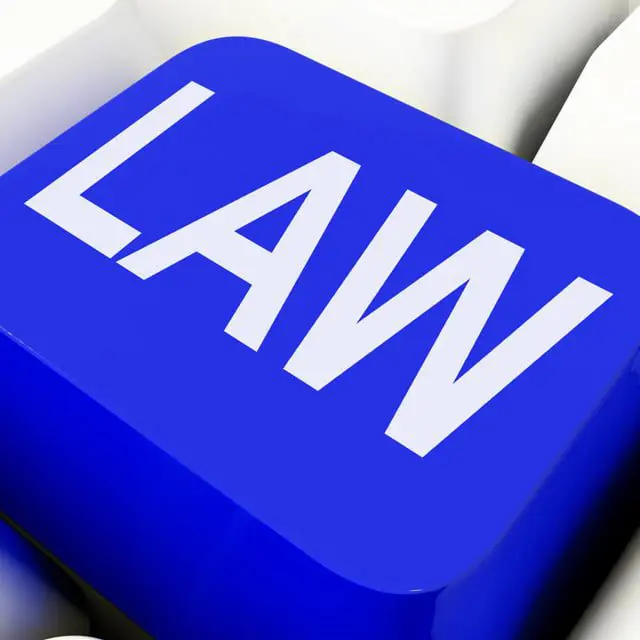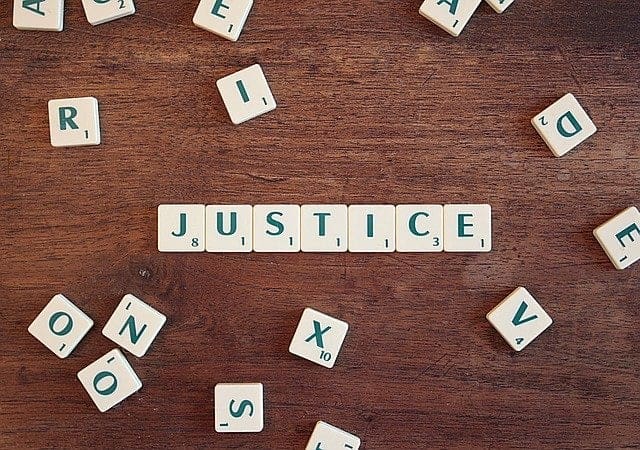Many individuals facing financial hardship may consider bankruptcy as a solution. However, understanding the implications of bankruptcy on estate planning is crucial to ensure that your assets are protected and distributed according to your wishes. In this comprehensive guide, we will examine into the intricacies of bankruptcy estate planning to provide you with the knowledge you need to make informed decisions for your financial future.
The Basics of Bankruptcy
While bankruptcy can be a daunting and overwhelming process, understanding the basics can help ease some of the stress associated with it. Bankruptcy is a legal process that allows individuals or businesses to seek relief from their debts and make a fresh financial start. This is done through the court either by restructuring debts or discharging them entirely.
Types of Bankruptcy
When considering bankruptcy, it’s important to understand that there are different types that cater to specific needs. The two most common types for individuals are Chapter 7 and Chapter 13 bankruptcy. Chapter 7 bankruptcy involves the liquidation of assets to pay off debts, while Chapter 13 bankruptcy allows for the restructuring of debts through a repayment plan. Each type has its own eligibility requirements and implications for your financial future.
- Chapter 7: Liquidation of assets to pay off debts.
- Chapter 13: Debt restructuring through a repayment plan.
Assume that your financial situation will determine which type of bankruptcy is most suitable for you.
How Bankruptcy Impacts Estate Planning
Bankruptcy can have a significant impact on estate planning as it affects your assets and debts. When you file for bankruptcy, your assets become part of the bankruptcy estate, which is managed by a trustee appointed by the court. This can complicate matters when it comes to estate planning, as the trustee may have control over the distribution of your assets.
Types of bankruptcy can influence the way you structure your estate plan and designate beneficiaries. It’s necessary to consider how filing for bankruptcy may impact the legacy you wish to leave behind for your loved ones. Seeking guidance from a qualified estate planning attorney can help navigate these complexities and ensure your wishes are carried out effectively.
Assessing Your Financial Situation
Evaluating Assets and Liabilities
Assets play a crucial role in bankruptcy estate planning as they determine what can be used to settle debts. Begin by creating a detailed list of all your assets, including both tangible assets like real estate, vehicles, and personal belongings, as well as intangible assets like retirement accounts and investments. On the other side of the equation are liabilities, which consist of debts and financial obligations. Evaluating your liabilities involves listing all outstanding debts, such as mortgages, credit card balances, and personal loans. By comparing the total value of your assets to your liabilities, you can gain a clear understanding of your financial standing.
The Role of Exemptions in Bankruptcy
The role of exemptions in bankruptcy is critical as they determine which assets you can protect from being liquidated to repay creditors. Exemptions vary by state and category, with some states offering more generous exemptions than others. Common exemptions include homestead exemptions for primary residences, exemptions for vehicles up to a certain value, and exemptions for personal belongings like clothing and household items. Understanding the exemptions available in your state is vital to safeguarding your assets during bankruptcy proceedings.
Another important aspect to consider is that utilizing exemptions effectively can help you retain vital assets that are necessary for your daily living or future financial stability. By strategically utilizing exemptions that align with your specific circumstances, you can navigate the bankruptcy process more successfully and emerge with a more secure financial foundation.
Estate Planning Tools and Their Role in Bankruptcy
Many individuals facing financial struggles may wonder about the role of estate planning tools in the context of bankruptcy. Estate planning tools, such as trusts and wills, play a crucial role in protecting assets and ensuring that one’s wishes are carried out in the event of financial challenges such as bankruptcy.
Trusts and Their Treatment in Bankruptcy
The use of trusts in estate planning can be particularly beneficial in the context of bankruptcy. Trusts, when properly structured, can shield assets from being included in the bankruptcy estate. This means that assets held in a trust may be protected from creditors and bankruptcy proceedings, providing a secure way to preserve wealth for future generations.
Wills and Designating Beneficiaries
To complement the protection offered by trusts, wills play a vital role in estate planning, especially in designating beneficiaries. When drafting a will, individuals can specify who will inherit their assets upon their passing. This not only ensures that their wishes are carried out but also provides clarity and direction for loved ones during an already difficult time.
This vital aspect of estate planning becomes even more critical in the event of a bankruptcy. By designating beneficiaries in a will, individuals can protect certain assets from being included in the bankruptcy estate, ensuring that their loved ones receive the intended inheritance.
The Automatic Stay and the Estate
Impact of the Automatic Stay on Estate Assets
Assets belonging to the bankruptcy estate are subject to the automatic stay upon the commencement of bankruptcy proceedings. This means that the creditors are prohibited from taking any actions to collect debts or seize property that is part of the estate. The automatic stay provides a breathing room for the debtor and allows the bankruptcy process to unfold without interference from creditors.
Exceptions to the Automatic Stay
Any property not included in the bankruptcy estate is not protected by the automatic stay. For example, assets acquired after the bankruptcy petition is filed are not considered part of the estate and thus not covered by the stay. Additionally, certain actions such as criminal proceedings, domestic support obligations, and tax audits are not subject to the automatic stay.
It’s important to consult with a bankruptcy attorney to understand the specific exceptions that may apply to your case. Having a clear understanding of what is and isn’t protected by the automatic stay can help avoid complications during the bankruptcy process.
Stay
The automatic stay is a powerful tool that can provide relief to debtors seeking protection from creditor actions. Understanding how the automatic stay impacts estate assets and the exceptions to its coverage is crucial for a successful bankruptcy estate planning process.
Strategies for Protecting Assets
Conversion of Non-exempt to Exempt Assets
To protect your assets during bankruptcy estate planning, one strategy is to convert non-exempt assets into exempt assets. This involves identifying which of your assets are protected under the law and strategically reorganizing your assets to ensure they fall under the exempt category. This can help safeguard your most valuable possessions from being seized during bankruptcy proceedings and provide a more secure financial future.
Timing Considerations in Asset Protection
In terms of asset protection in the context of bankruptcy estate planning, timing is crucial. Choosing the right time to implement asset protection strategies can make a significant difference in the outcome. It’s vital to consider the specific laws and regulations governing asset protection in your jurisdiction and plan accordingly. By understanding the timing considerations involved, you can maximize the protection of your assets and minimize the risk of losing them during bankruptcy proceedings.
Asset protection strategies should be implemented well in advance of any financial difficulties or bankruptcy filings. Waiting until the last minute may limit your options and could lead to assets being vulnerable to seizure. It’s crucial to seek professional guidance to navigate the legal complexities and ensure that your assets are adequately protected.
The Role of Bankruptcy and Estate Planning Professionals
Choosing the Right Bankruptcy Attorney
Bankruptcy is a complex legal process that requires the expertise of a skilled attorney. When considering filing for bankruptcy, it is crucial to choose the right bankruptcy attorney who has experience in handling bankruptcy cases. A qualified bankruptcy attorney can guide you through the process, help you understand your options, and represent your best interests in court.
The Importance of Financial Advisors in Estate Planning
Right alongside a bankruptcy attorney, having a financial advisor in your corner can be extremely beneficial in estate planning. Financial advisors can provide valuable insights and strategies to help you manage your finances effectively, especially during challenging times such as bankruptcy. They can assist in creating a financial plan that aligns with your estate planning goals and helps you make informed decisions about your assets and investments.
Understanding the complexities of estate planning and navigating through the bankruptcy process can be overwhelming tasks. By enlisting the expertise of both bankruptcy attorneys and financial advisors, you can gain the assurance that your assets and financial future are in capable hands.
After Bankruptcy: Rebuilding Your Estate Plan
Now that you have successfully navigated through bankruptcy and are looking to rebuild your financial health, it is crucial to update your estate plan to reflect your current situation. Updating your estate plan post-bankruptcy is an necessary step to ensure that your assets are protected and distributed according to your wishes in the future.
Updating Your Estate Plan Post-Bankruptcy
Bankruptcy can have a significant impact on your estate plan, as it may have affected the assets you own and how they are distributed. It is advisable to review your will, trust, and beneficiary designations to make any necessary changes. You may also want to consider setting up a trust to protect your assets from creditors in the future.
Long-term Strategies for Financial Health
For long-term financial health after bankruptcy, it is necessary to focus on rebuilding your credit and saving for the future. Consider working with a financial advisor to create a budget and savings plan that align with your financial goals. You may also want to explore options for investing in retirement accounts and setting up an emergency fund to prepare for unexpected expenses.
Your financial health after bankruptcy is crucial for securing your future and the future of your loved ones. By implementing long-term strategies and updating your estate plan post-bankruptcy, you can work towards rebuilding your estate and achieving financial stability.
To wrap up
The process of bankruptcy estate planning is important for individuals considering filing for bankruptcy. By understanding how to protect their assets, debtors can ensure a smoother financial transition during and after the bankruptcy process. This involves careful consideration of state laws, exemptions, and proper documentation of assets, as well as seeking advice from legal and financial professionals.
The complexities of bankruptcy estate planning may seem overwhelming, but with the right guidance and preparation, individuals can navigate this process successfully. By taking the necessary steps to protect their assets and make informed decisions, debtors can safeguard their financial future and emerge from bankruptcy with a solid plan for rebuilding their financial well-being.
















